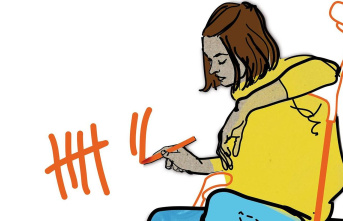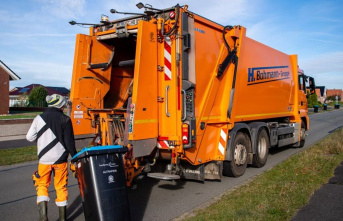With regard to the protection of moors, farmers in north-western Lower Saxony have special expectations of the future state government and the federal government. The climate protection goals would have significant consequences, especially for the moor-rich region in north-western Lower Saxony, said Karsten Padeken, chairman of the district people's association Wesermarsch, the German press agency in Ovelgönne. "We all agree that something has to happen in terms of moorland and climate protection," said Padeken. But it's about the way and also about how evenly the burdens are distributed. "It can't be that a few people have to shoulder the burden alone. Climate protection is a joint task."
The background to this is the fact that a considerable amount of climate-damaging carbon dioxide (CO2) escapes from drained moors. In Lower Saxony - the federal state with the most peat - these emissions account for eleven percent of the total CO2 emissions, according to rural folk. These emissions must be completely ended by 2045, according to the Federal Climate Protection Act of 2021. This can only be achieved if a large part of the moorland is rewetted. In Lower Saxony, the north-west is particularly affected. Dairy farming is an important source of income here.
According to the previous plans of the federal and EU politicians, this would have to be given up in the future, because the water level would have to be raised significantly for the moor protection on the areas now used for agriculture. A recent study by the Grassland Center Lower Saxony-Bremen analyzed the economic consequences for the first time. According to this, an area of almost 200,000 hectares in north-west Lower Saxony would be affected.
According to the study, giving up milk production in the region would result in a loss of added value of 472 million to 673 million euros per year. Between 3,500 and 6,000 jobs were lost in agriculture, along with between 30,000 and 48,000 jobs upstream and downstream. The land that can no longer be used for agriculture is also likely to lose value drastically - the estimate here is up to 2.5 billion euros.
Padeken complained that politicians had not yet given sufficient consideration to the social and economic consequences for the region. Among other things, it is not yet clear what will happen to the settlement structures in the region. There is also still no concept for the changes in water management for the region: "To date, no impact assessment has been made for the region in any form whatsoever."
The study opens up the possibility of thinking about various peatland and climate protection measures. "We need different building blocks," said Padeken. That means: It should not only be based on the rewetting of all moor areas, but various measures should be examined. And dairy farming should not be given up completely either, but should still be possible within certain limits. Because there is simply no market for the alternative agricultural uses of the moor areas proposed by politics and science, said Padeken.
Study "Future of peatland sites in Lower Saxony"












